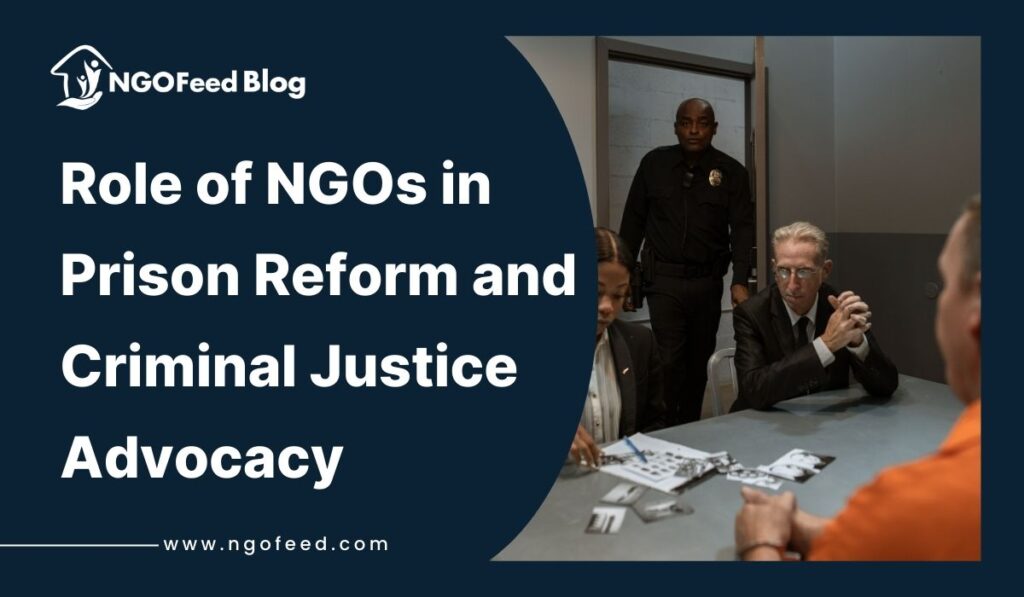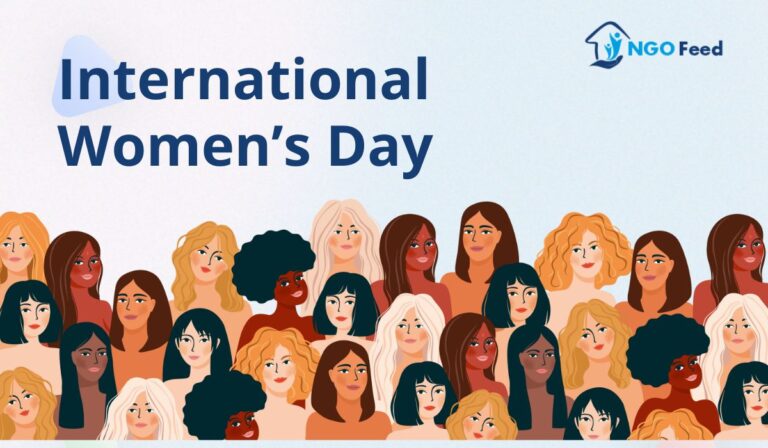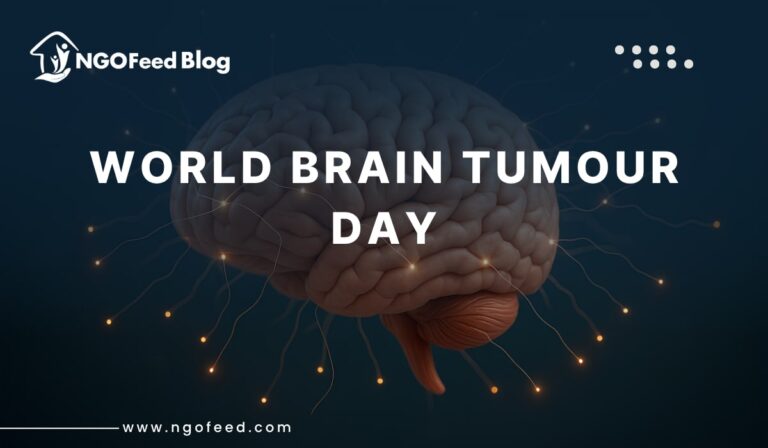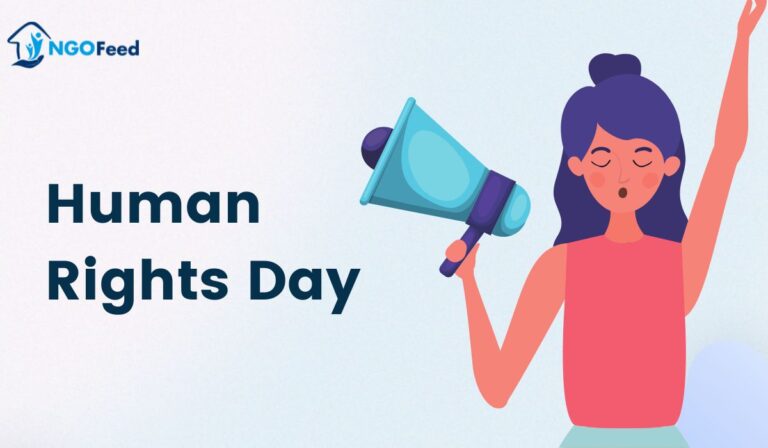Role of NGOs in Prison Reform and Criminal Justice: The criminal justice system worldwide faces numerous challenges, including overcrowded prisons, harsh sentencing laws, inadequate rehabilitation programs, and systemic inequalities. Non-governmental organizations (NGOs) play a crucial role in addressing these issues by advocating for policy changes, improving prison conditions, supporting rehabilitation, and protecting the rights of vulnerable populations.
Through their efforts, NGOs help create a more just and humane system that prioritizes rehabilitation over punishment. This essay examines the key roles NGOs in India play in prison reform and criminal justice, focusing on their impact on policy advocacy, prisoner welfare, rehabilitation, and systemic change.
Table of Contents
1. Advocating for Policy and Legal Reforms
One of the most significant contributions of NGOs is their work in advocating for policy and legal reforms. Many criminal justice systems suffer from outdated laws, excessive punishment for minor offenses, and discriminatory practices. NGOs challenge these issues by lobbying governments, conducting research, and raising public awareness.
For example, the American Civil Liberties Union (ACLU) has been instrumental in fighting against mass incarceration, advocating for bail reform, and challenging unjust sentencing laws.
Also Read: Transparency in Nonprofit Operations
Similarly, the Prison Reform Trust in the UK works to reduce prison overcrowding and promote alternatives to incarceration, such as community service and restorative justice programs. NGOs also push for the abolition of inhumane practices like solitary confinement, which has been linked to severe psychological harm.
By influencing policymakers and shaping public opinion, NGOs help create a legal framework that is fairer and more effective in reducing crime and recidivism.
2. Improving Prison Conditions and Protecting Human Rights
Prisons in many countries are plagued by poor living conditions, violence, and neglect. NGOs play a critical role in exposing these abuses and advocating for better treatment of prisoners.
Organizations like Amnesty International and Human Rights Watch investigate and document human rights violations in prisons, including torture, inadequate healthcare, and unsanitary conditions.
NGOs also work directly with prison administrations to implement reforms. For instance, the International Committee of the Red Cross (ICRC) monitors detention facilities worldwide and provides recommendations to improve conditions.
Additionally, NGOs campaign for the rights of marginalized groups within prisons, such as women, juveniles, and LGBTQ+ individuals, who often face discrimination and abuse.
Through their efforts, NGOs ensure that prisoners are treated with dignity and that their basic human rights are upheld.
Also Read: Role of ICARDA in India
3. Supporting Rehabilitation and Reintegration
A key goal of the criminal justice system should be to rehabilitate offenders and help them reintegrate into society. Unfortunately, many prisons fail to provide adequate education, job training, or mental health support. NGOs fill this gap by offering programs that equip prisoners with the skills they need to rebuild their lives.
Organizations like The Fortune Society and Prison Fellowship provide vocational training, addiction treatment, and educational opportunities to inmates. Studies show that prisoners who participate in such programs are far less likely to reoffend.
For example, a report by the RAND Corporation found that inmates who took part in educational programs had a 43% lower recidivism rate.
NGOs also assist former prisoners with housing, employment, and legal support after release, reducing the chances of them returning to crime.
Also Read: Role of UNESCAP in India
4. Protecting Vulnerable Groups in the Justice System
Certain populations, such as women, juveniles, and individuals with mental health issues are disproportionately affected by flaws in the criminal justice system. NGOs focus on addressing their unique needs.
- Women in Prison: Organizations like the Women’s Prison Association advocate for gender-sensitive policies, such as better healthcare for pregnant inmates and alternatives to incarceration for non-violent offenders.
- Juvenile Justice: NGOs like the Juvenile Law Center work to keep young offenders out of adult prisons and push for rehabilitation-focused approaches.
- Mental Health & Substance Abuse: The National Alliance on Mental Illness (NAMI) fights for proper mental health care in prisons, where many inmates suffer from untreated illnesses.
By targeting these vulnerable groups, NGOs ensure that the justice system does not perpetuate further harm.
Also Read: Role of NGOs in Sustainable Development
5. Providing Legal Aid and Fighting Wrongful Convictions
Many prisoners lack access to proper legal representation, leading to wrongful convictions and excessive sentences. NGOs provide critical legal support to those who cannot afford it.
The Innocence Project, for example, uses DNA evidence to exonerate wrongfully convicted individuals. Other organizations, like the Southern Poverty Law Center, challenge unfair sentencing practices, particularly in cases involving racial bias.
Through legal advocacy, NGOs help correct injustices and push for systemic reforms that prevent future wrongful convictions.
Also Read: Role of WHO in Healthcare
6. Reducing Recidivism Through Systemic Change
One of the biggest challenges in criminal justice is reducing recidivism—the cycle of reoffending. NGOs tackle this issue by addressing its root causes, such as lack of education, unemployment, and social stigma.
Programs that focus on job training, mentorship, and community support have proven effective. For instance, the Delancey Street Foundation helps former inmates gain employment and housing, significantly lowering their chances of returning to prison.
NGOs also advocate for “ban the box” policies, which remove criminal history questions from job applications, giving ex-offenders a fair chance at employment.
Conclusion
NGOs are indispensable in transforming the criminal justice system into one that prioritizes fairness, rehabilitation, and human dignity. Through policy advocacy, improving prison conditions, supporting reintegration, protecting vulnerable groups, and providing legal aid, they address systemic flaws and push for meaningful change.
Also Read: Role of NGOs in Conservation and Biodiversity Protection
While challenges remain, such as funding limitations and political resistance, the work of NGOs continues to make prisons more humane and justice systems more equitable. Supporting these organizations is essential to building a society where justice truly means rehabilitation, not just punishment.
Frequently Asked Questions (FAQs)
1. What is the role of NGOs in prison reform?
NGOs play a crucial role in advocating for changes to the criminal justice system. They work on issues such as improving prison conditions, pushing for policy reforms, providing legal support to prisoners, and offering rehabilitation programs to help prevent recidivism.
2. How do NGOs advocate for policy change in the criminal justice system?
NGOs push for legal and policy reforms that promote justice and fairness, such as reducing sentences for non-violent crimes, promoting alternatives to incarceration, advocating for better prison conditions, and challenging discriminatory practices in the legal system.
3. What kind of programs do NGOs run for prisoners?
NGOs provide various programs that focus on rehabilitation, such as vocational training, education, mental health support, and substance abuse treatment. These programs aim to prepare prisoners for reintegration into society and reduce recidivism.
4. How do NGOs support vulnerable groups within prisons?
NGOs provide support for vulnerable groups such as women, juveniles, LGBTQ+ individuals, and those with mental health or substance abuse issues. They offer specialized care, advocate for gender-specific policies, and work to protect these groups from abuse and discrimination in prison.
5. Do NGOs help with legal support for prisoners?
Yes. Many NGOs offer legal aid services to prisoners, helping them understand their rights, file appeals, and navigate the justice system. NGOs like The Innocence Project work to free wrongly convicted individuals.
6. How do NGOs address the issue of over-incarceration?
NGOs advocate for reforms that reduce over-incarceration, especially for non-violent offenders. They promote alternatives to prison, such as community-based sentencing, and push for bail and parole reforms to ensure a more just and balanced system.
7. Can NGOs help prisoners after they are released?
Yes, NGOs assist prisoners with reintegration by providing housing, employment support, mental health services, and guidance to help them transition back into society successfully and reduce the chances of re-offending.









